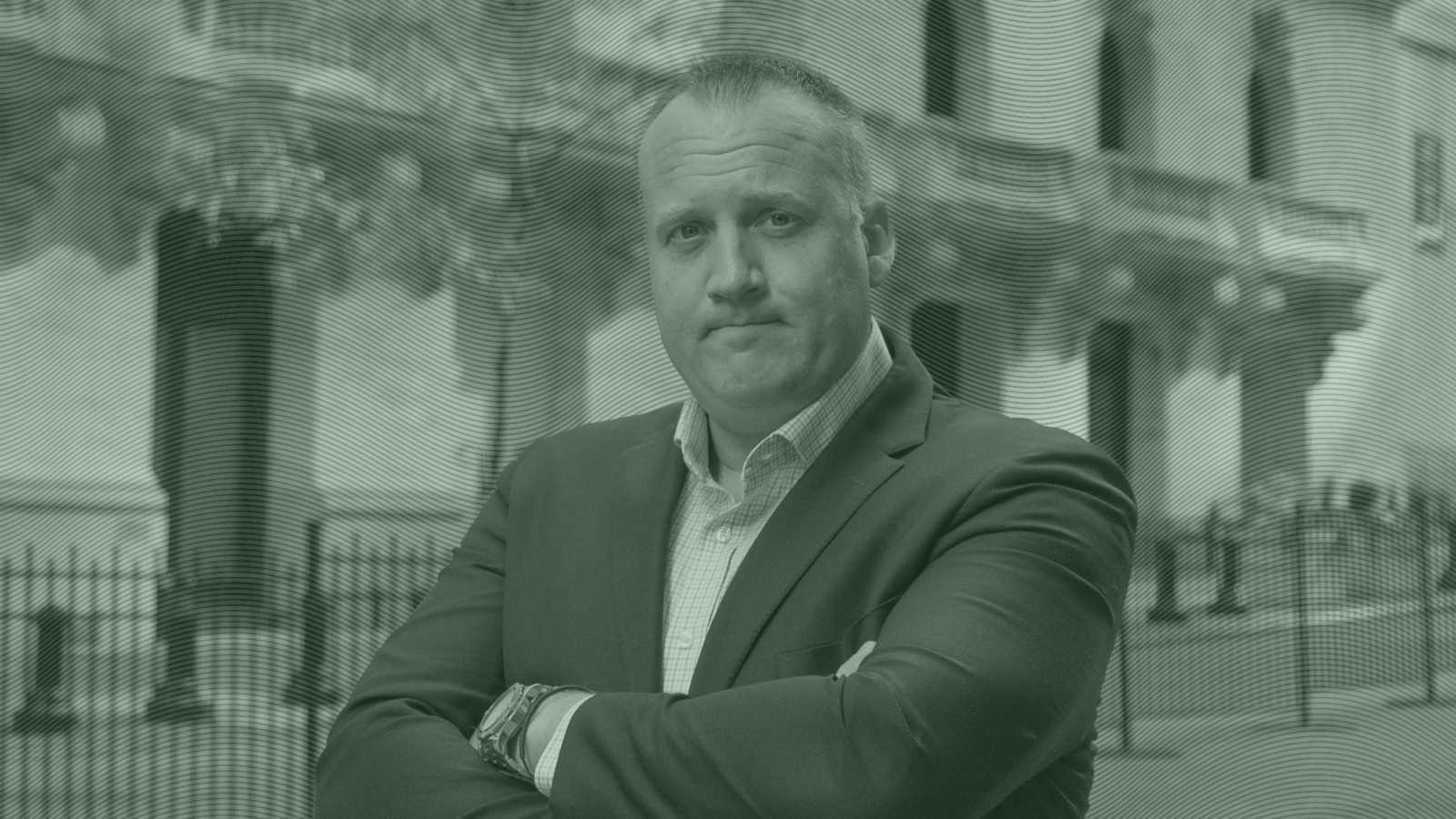Good morning.
The switch to one-day settlements in the US has been a bit, well, unsettling.
Closing trades in a single day, known in the industry as T+1, has been a welcome change from the previous two-day closing period, and has freed up billions of dollars for some companies, according to a new Citi report. But European traders are now “managing settlement and funding issues in the middle of the night,” and some US asset managers say they are being forced to relocate employees overseas to help facilitate trades after the bell.
Hey, the good news is that some employees just landed their dream finance job in Europe — just be sure that caffè americano is a double.
Josh Brown Talks AI and ‘Perpetual Motion Machines’

AI’s been getting headlines for all the wrong reasons lately. Investments in artificial technology infrastructure (new data centers, chip factories, power grids) are expected to top $1 trillion in the coming years, but new research from Goldman Sachs is asking … why? And with about half the earnings growth of the S&P 500 tied to AI-heavy tech companies, it’s just not clear what happens if that dries up.
It’s the biggest open question for the markets right now, according to famed investing commentator Josh Brown. “It’s more important than literally any jobs [report] numbers or whatever the Fed does next week,” he told The Daily Upside.
It Is What It Is
Downtown Josh Brown has come a long way since he started his groundbreaking blog “The Reformed Broker” in 2008 (it was sunset last year), and is now pulling together some of his best talking points into a new book, “You Weren’t Supposed to See That,” that hit shelves this week.
“I wouldn’t have written this 10 years ago,” he said. “I’m obviously writing this from a period in my life where I have less to fear about offending people. I’ve been around long enough that if you don’t like me, you’re not going to like me.”
Brown sat for an interview with The Daily Upside this week:
TDU: Is AI overhyped?
JB: These companies are all interrelated and they are round-tripping each others’ revenue, and so a company spends this much money on chips, which leads another company to spend on more computers. It’s obvious that if the merry-go-round stops spinning or starts to spin in reverse, it’s gonna put earnings growth in jeopardy. There’s no such thing as perpetual motion machines. That’s the No. 1 risk to the S&P 500. Rationally, I still want to be an investor.
TDU: What’s no one talking about?
JB: When Apple comes out with an iPhone where AI functions are native. You can truly have a conversation with Siri and say things like, “Hey Siri, get me tickets to Pearl Jam next week in Boston,” and you literally have a phone that is acting as an agent on your behalf and scouring ticketing websites, and negotiating with other people’s bots. That s*** is coming.
TDU: What’s the book’s main takeaway?
JB: Just how hard it is to be an investor. Given the noise level in any given year, there are 10 or 15 things that take place that are powerful enough to jar you from your strategy or your goals. There are constantly things happening that can confuse people or can change their minds about how much risk they want to take and that can throw a portfolio off course.
We’ve lived through so many things that have never happened before and so many things that have happened again and again and again. You’ve basically seen more in the last 15 years than investors, prior to this era, have seen in 50 years. The bigger story is taking risks ultimately pays off — if it’s done in an intelligent way.
FINRA Cases Hit Record Lows. Warren Wants Answers
One Wall Street regulator claims it’s doing more with less, but not everyone is buying in.
Enforcement cases brought by the Financial Industry Regulatory Authority plummeted last year, sliding to the lowest level in the agency’s history, according to a Bloomberg report. While fines ticked up last year, they made up only about half of what the agency brought in during a peak in 2016. Those brow-raising data points caught the eye, and ire, of Massachusetts Sen. Elizabeth Warren.
“This is a deeply troubling report,” she wrote in a letter to FINRA CEO Robert Cook. “I write today to seek an explanation.”
Off the Beat-en Path
There were just 426 enforcement actions carried out by the regulator in 2023, the lowest since FINRA was created in 2007, according to the letter. Fines imposed by FINRA for members that allegedly broke the rules have declined to just $88.4 million last year, down from $174 million in 2016. “Financial crimes cannot be prevented if you take the cop off the beat,” she wrote.
“Pointedly, FINRA is no longer the cop on the Wall Street beat, but, sadly, seems largely relegated to the role of a look-out for the industry’s larger firms,” said Bill Singer, a lawyer with more than 40 years’ experience in securities law.
Mo’ Money, Mo’ Problems: Meanwhile, headcount and employee salaries are on the rise. The total compensation and benefits for the 4,300 employees at FINRA in 2023 were, on average, $233,500 per worker, according to the self-regulatory organization’s annual report. That jumped by 4.7% from the previous year.
The calls over FINRA’s effectiveness are only getting louder. Project 2025, a conservative manifesto created by the right-leaning lobby group, unveiled plans to potentially abolish the agency if Republicans take over in November. FINRA now finds itself getting squeezed on both sides of the political aisle. A spokesperson said the agency is planning to respond to the senator’s critiques.
“The experiment of self-regulation is an abject failure with no justification for its continuance in 2024,” Singer said.
Is Less Really More? FINRA says it’s simply doing more with less. Although fines are down in recent years, FINRA said improved strategies and planning have streamlined its oversight, removing the need for more enforcement actions, according to Warren’s letter. Recent FINRA reporting outlined the progress at the agency:
- The self-regulator imposed $88.4 million in fines in 2023. The company also returned $7.5 million in restitution to harmed investors.
- FINRA expelled five members from the industry, suspended 257 brokers, and barred 178 brokers last year.
Where Does Gen Z Turn for Financial Advice? It’s Not TikTok

Sometimes parents really do know best.
Forty-one percent of Gen Z investors (ages 22-27) said they consult their parents and other family members for all things money, making family the go-to source for financial advice among the young, according to a survey from Insurify based on Pew Research data. Perhaps not surprisingly, TikTok came in second place at 22%.
“Only parents and other knowledgeable relatives beat out the video-sharing platform, which explains why so much of the financial advice on TikTok sounds like it came straight out of the ’90s — with a notable Gen Z twist,” the survey said.
Listen to Your Mother
An advisor is the ideal option for financial advice (it is in the name), but younger people with little funds might not be able to afford those kinds of services. Just 16% of respondents said they use a financial advisor and instead lean on their parents, siblings, and other relatives.
- Receiving financial advice from friends took the third spot in the survey with 17%.
- Gen Z tapped Instagram, Facebook, and X even less at 14%, 11%, and 6%, respectively.
- Fifteen percent said they look to news sites and blogs, and another 15% said they don’t seek advice at all.
The Biggest Grain of Salt: Social media provides information on a massive scale, but is it the best place for financial advice? The data — surprise, surprise — clearly says no. A Swiss Financial Institute study of 29,000 TikTok accounts revealed that 28% of finfluencers were skilled, generating 2.6% monthly abnormal returns. Meanwhile, 16% were unskilled, offering advice that provides neither gains nor losses.
And a whopping 56% of finfluencers were classified as anti-skilled, generating -2.3% monthly abnormal returns — meaning listening to them is worse than receiving no advice at all. These finfluencers, often the most active and followed on TikTok, exhibit what Gen Z might call negative rizz.
Extra Upside
- Buy Now, Pay Later. Viral TikTok videos had some people believing they could get “free cash” from Chase ATMs. Legal experts are simply calling it fraud.
- Too Big to Fail: The index-fund revolution is shaking up corporate America as BlackRock and Vanguard become top investors in the world’s biggest companies.
- Big Fish. LPL Financial snapped up the $9 billion wealth management firm The Investment Center, pushing headcount over 23,000.
Advisor Upside is edited by Sean Allocca. You can find him on LinkedIn.
Advisor Upside is a publication of The Daily Upside. For any questions or comments, feel free to contact us at advisor@thedailyupside.com.
